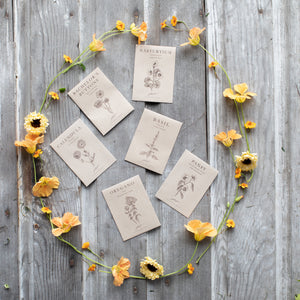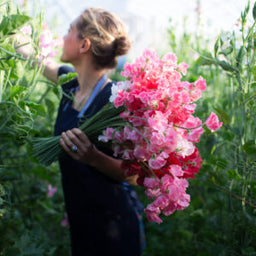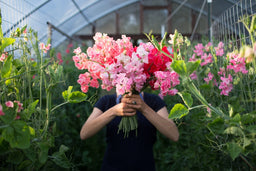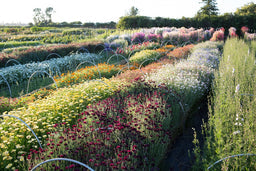
Sweet Pea ‘Patricia Marilyn’
Lathyrus odoratus
Description
This lovely, feminine variety has sweet, light warm pink flowers that fade to white. Blooms carry a light fragrance.
Please note: Unlike garden peas, sweet pea seeds are poisonous if ingested. Use caution around children and pets.
Details
Height: 6 to 8 ft
Site: full sun
Days to maturity: 75 to 90 days
Plant spacing: 8 in
Pinch: when 4 to 6 in tall
Seed Sowing & Growing Notes
In mild areas, seed can be sown in pots in the fall, overwintered in a sheltered spot, and planted out in spring. Everywhere else, sow seed 10 to 12 weeks before last frost and transplant out right around last frost. Provide a strong trellis or support for vines to climb.
Harvesting/Vase Life
Details
Description
This lovely, feminine variety has sweet, light warm pink flowers that fade to white. Blooms carry a light fragrance.
Please note: Unlike garden peas, sweet pea seeds are poisonous if ingested. Use caution around children and pets.
Details
Height: 6 to 8 ft
Site: full sun
Days to maturity: 75 to 90 days
Plant spacing: 8 in
Pinch: when 4 to 6 in tall
Seed Sowing & Growing Notes
In mild areas, seed can be sown in pots in the fall, overwintered in a sheltered spot, and planted out in spring. Everywhere else, sow seed 10 to 12 weeks before last frost and transplant out right around last frost. Provide a strong trellis or support for vines to climb.
Harvesting/Vase Life
Sources
How to Grow
How to Grow
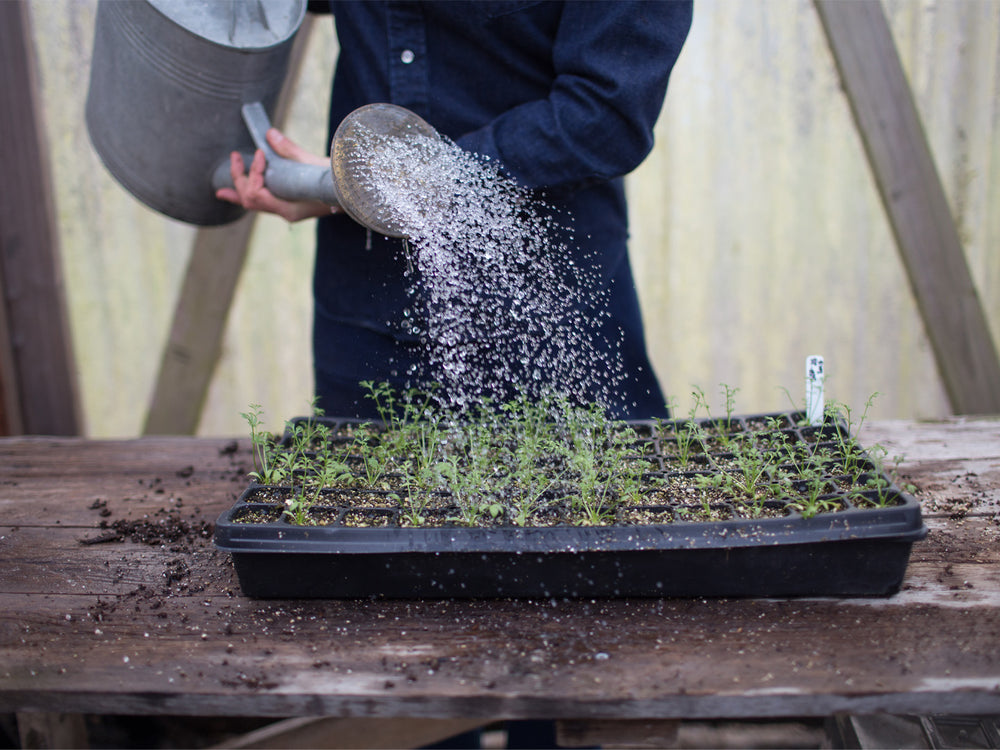
Winter Mini Course: Seed-Starting 101
Learn how to start flowers from seed in this three-part video series
In our Winter Mini Course, you’ll learn everything you need to know to successfully start flowers from seed, including all of the necessary supplies, step-by-step instructions, special tips and tricks, and how to create a simple indoor seed-starting area.






